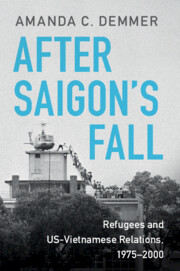4 - Cooperation on Humanitarian Issues
from Part II - 1980–1989
Published online by Cambridge University Press: 08 April 2021
Summary
Collaboration between Washington and Hanoi on humanitarian issues expanded significantly during the second half of the 1980s. International, regional, and domestic transformations facilitated enhanced cooperation. The thawing of the Cold War on a larger scale, including the Regan-Gorbachev summits, set the stage for closer relations. In Hanoi, the ascension of a new, younger generation of leaders more willing to transform Vietnamese economic and foreign policy invited closer ties. In Washington, the growing assertiveness of members of Congress, especially veterans, and the importance of nongovernmental advocacy, especially that of the Families of Vietnamese Political Prisoners Association, all combined to lead to a dramatic thaw in US-Vietnamese relations.
Throughout the 1980s, US policymakers insisted that Hanoi address humanitarian questions (to American satisfaction) before the two sides could proceed with formal relations. While demanding that the SRV work with the United States to facilitate family reunification, US policymakers also led an international effort to isolate the SRV on a global stage.As the decade came to a close, the contradiction between these two approaches became increasingly unsustainable; cooperation on humanitarian issues was normalizing US-Vietnamese relations, despite American assertions to the contrary.
Keywords
Information
- Type
- Chapter
- Information
- After Saigon's FallRefugees and US-Vietnamese Relations, 1975–2000, pp. 129 - 162Publisher: Cambridge University PressPrint publication year: 2021
